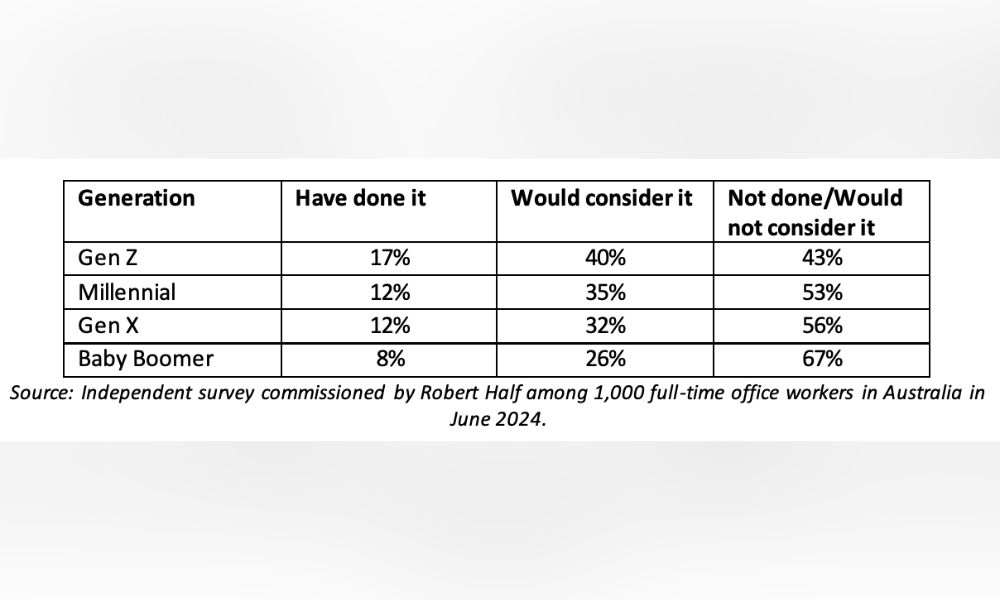
Companies urged to 'analyse the motivations' behind new workplace trend

A new workplace trend dubbed as "quiet vacationing" is making its rounds across Australia as the country enters its winter season.
Quiet vacationing is a practice where employees take advantage of the flexibility of their job to work from holiday destinations without notifying their employers, according to Robert Half director Nicole Gorton.
In Australia, Robert Half's findings revealed that 12% out of 1,000 full-time office workers have already practiced quiet vacationing in the past - with Gen Z staff most likely to do this (17%).
Another 33% of the respondents are also considering working remotely from a holiday destination, with Gen Zs remaining in the lead for being the most likely to think about it (40%).

On the other hand, 55% of employees consider quiet vacationing as a "step too far" and would not do it, nor consider doing it in the future.
According to the report, employees are divided on how they believe their bosses would react if they were found remotely working from a holiday destination.
More than a third of the respondents (36%) believe their employer would likely do nothing about it as long as their work was done. For others, they believe:
However, despite more than a quarter of employees feeling concerned that working remotely from holiday destinations can have repercussions, 53% believe that quiet vacationing is simply tapping into the benefits of remote work. Other reasons why employees practice quiet vacationing include:
"Companies should analyse the motivations behind 'quiet vacationing' so that employees don't feel the need to do so," Gorton said. "By understanding employees' reasons, employers can create more supportive and flexible work environments while also setting clear expectations and boundaries to avoid potential misconduct."